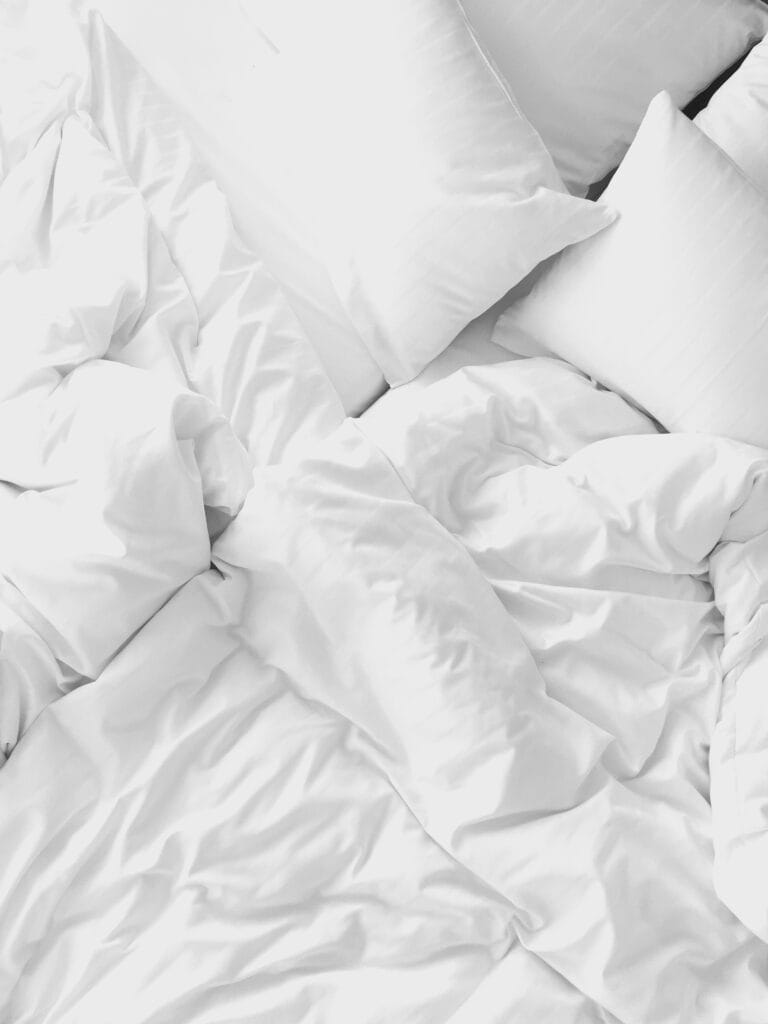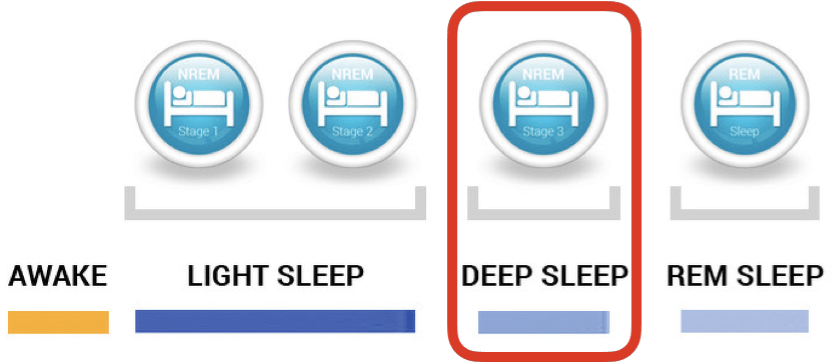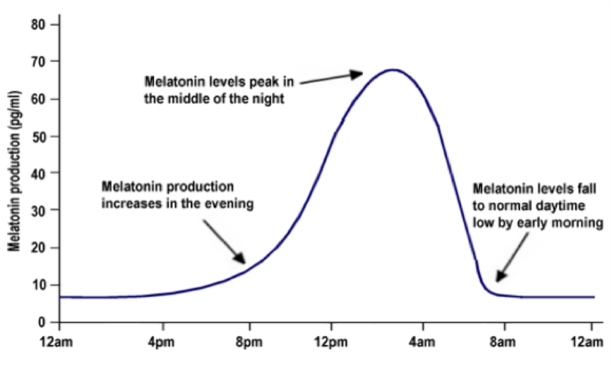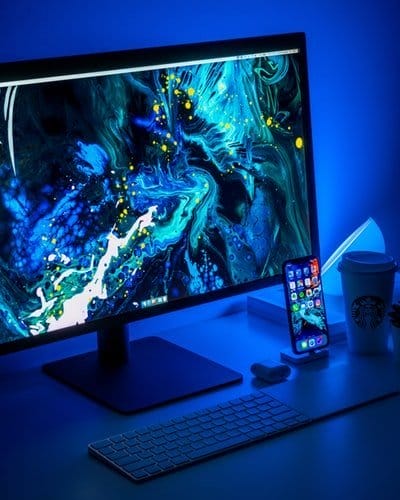Before we get stuck into things, I am going to take a punt! There is a good chance that you have been up since the crack of dawn, worked all day, and if you were lucky, managed to sneak into the gym for a CrossFit workout and some extra accessory work before heading home.
If that’s the case, you are probably tucked up in bed, on your smart phone or tablet, ready to repeat the cycle tomorrow.
If so, take this opportunity to knock your device into ‘Night Shift Mode’ before finishing off this night time read, you will thank me later!
Why Is Sleep So Important?
The importance of sleep quality and duration on both health and physical performance is well documented within academic literature, from reducing the incidence of catching a common cold, to reducing the risk of injury in sport. So why do so many of us push our luck and abuse this vital recovery tool we know as sleep?
When we sleep, our body goes through way more than we tend to think. Each person will typically go through four or five sleep cycles a night, six if you’re lucky! Naturally, it takes around 90 minutes for our body to go through the stages of sleep which constitute a ‘cycle’, these have been highlighted below:
Image via Withings
It is during the deep sleep stage where we reap the major physical restorative benefits of sleep, such as increases in testosterone and improved muscle recovery. We hope to spend roughly 20% of our sleep in this deep sleep stage. Let’s take a look at some major internal and external factors impacting our sleep quality…
Circadian Rhythm: Your Body’s Internal Clock
We have all heard of the term early birds and night owls, right?
So, which category would you put yourself in? Would you rather get your head down early and be awake and fresh at the crack of dawn? Or… do you stay awake into the early hours of the morning and sleep until midday?
This is known as our circadian rhythm aka the body clock! You may not realise it, but this can have a significant impact on your day-to-day life, especially if you’re a keen gym goer! A recent study conducted by Maukonen et al.,(2017) aimed to assess over 1,400 participants sleeping and eating habits, this is what they found:
Research suggests that a person’s lifestyle plays a key role in manipulating this. Those who are inactive, younger and single are more likely to be night owls. Whereas those who are more active, have more demanding jobs and are in a stable relationship, are more likely to be early birds!
Melatonin and Sleep
Melatonin is a hormone that is produced and released from the pineal gland (found deep in the back of your brain) into the bloodstream at night. Simply, it is our body’s way of telling us that it is getting dark and time to go to sleep.
The hormone helps regulate the timing of when sleep occurs by strategically signalling ‘darkness’ through the body, even though it has little influence on the generation of sleep itself. Imagine a 100m sprint, melatonin is the starter pistol and sleep is the race. Although it initiates when the athletes explode out of the blocks, it does not partake in the race itself.
Throughout the day, Melatonin levels in the body will rise and fall in sync with our body’s circadian rhythm (body clock). As we start the day, well rested and raring to go, melatonin is low. This slowly starts to build up leading into early evening before peaking around midnight. This is shown in the graph below, notice this falls in line with when we begin to feel tired:
The Rise and Fall of Melatonin throughout the day.
Image via Sandhills Neurologists
Blue Light and Sleep Quality
Blue light is a colour in the visible light spectrum that can be seen by the human eye, but it has its pros and cons!
There are a number of sources of blue light, some of these include: the sun, digital screens, electronic devices, and fluorescent and LED lighting.
Blue light from natural sources such as the sun, has its benefits; from regulating circadian rhythm, to boosting alertness and lifting mood. However, the blue light emitted from our TV screens, smart phones and tablets suppresses the production of melatonin in the pineal gland.
In turn, this negatively impacts our body’s sleep cycles, resulting in lack of and poor sleep quality!
So… Let’s shed some light on things (pun intended).
A study conducted by Nagare, Plitnick and Figueiro (2018), decided to address the effectiveness of the ‘night shift mode’ on reducing melatonin suppression when using portable devices such as smart phones and tablets. Participants were split into four groups:
Group 1 – Control Group (Dim Light)
Group 2 – Blue Light intervention
Group 3 – Night Shift + High Screen Brightness
Group 4 – Night Shift + Low Screen Brightness
The results were astonishing:
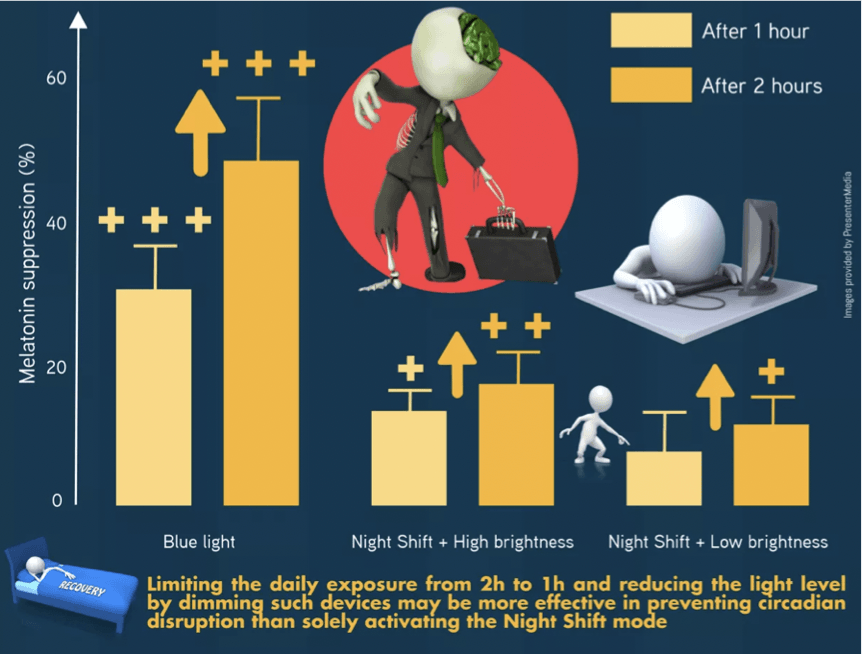
This infographic helps communicate the negative effects that blue light has on our sleep when used before bed. We can often find ourselves engrossed in hours of mindfulness scrolling on social media, and before we know it the clock is reading 01:30am and we are yet to switch off. As seen in this study 2 hours of use can suppress melatonin by over 50%! However, using the night shift mode with screen brightness turned down low, reduces melatonin suppression substantially.
Caffeine – Be Smart On Your Late Night ‘Coffee Clubs’
When we are feeling tired, there’s nothing more tempting than paying a visit to your favourite barista to get that much needed caffeine fix. Don’t get me wrong, coffee has its benefits, however, with the pros there are always cons!
“Caffeine, the most widely used (and abused) psychoactive stimulant in the world” (Walker, 2017).
Caffeine works by actively battling the chemical in the body known as Adenosine by attaching itself to its receptors. Caffeine works by effectively deactivating the adenosine receptors acting as a masking agent to the chemical compound; just like blocking your ears to mask out a loud noise.
With this in mind, caffeine has an afterlife of between 4 and 6 hours! Think of this, the caffeine consumed in your social coffee date at eight in the evening, is actually affecting your body until almost 2am! This is not ideal for optimising recovery and getting the most out of your night’s sleep.
Top tip: swap your coffee for a decaf. Although not all caffeine will be removed from your late-night brew, there will be a hell of a lot less in there!
Still not convinced? I would highly recommend tuning into the ‘Joe Rogan Experience’ podcast and listening to the episode with Dr. Matthew Walker – a neuroscientist specialising in all things sleep related. It’s a huge eye opener!
Want to learn more about how our lifestyle choices affect our performance at the gym? We’ve got you covered! Our blog posts range from nutrition advice to tips on improving your aerobic capacity to make sure that you are equipped with everything you need to reach your fitness goals.
Cai Jenkins
Cardiff Blues Academy Strength and Conditioning Coach
REFERENCES
Marshall, G.J. and Turner, A.N., 2016. The importance of sleep for athletic performance. Strength & Conditioning Journal, 38(1), pp.61-67.
Maukonen, M., Kanerva, N., Partonen, T., Kronholm, E., Tapanainen, H., Kontto, J. and Männistö, S., 2017. Chronotype differences in timing of energy and macronutrient intakes: A population‐based study in adults. Obesity, 25(3), pp.608-615.
Nagare, R., Plitnick, B. and Figueiro, M.G., 2018. Does the iPad Night Shift mode reduce melatonin suppression? Lighting Research & Technology, p.1477153517748189.
Walker, M., 2017. Why we sleep: the new science of sleep and dreams. Penguin UK.

